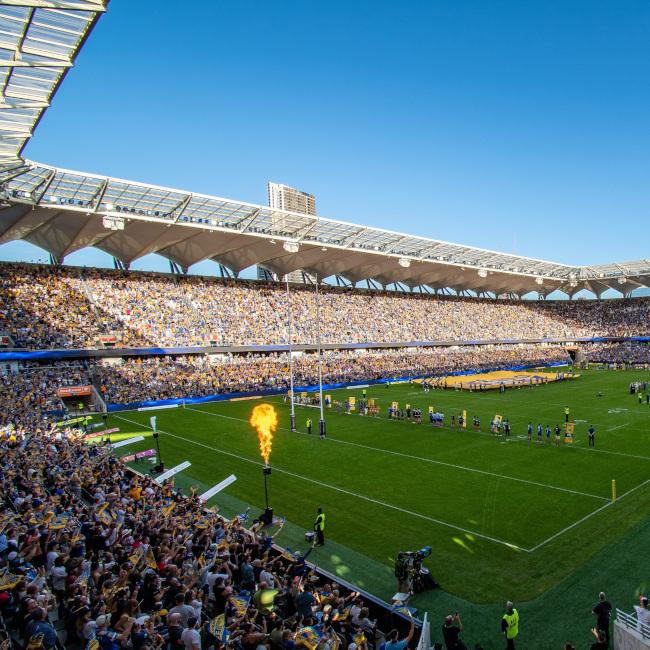
Zeroing in on Net Zero

"Net zero" targets are set in many countries, but how to achieve this with facilities and venues whose materials traditionally embody significant amounts of carbon and that consume high amounts of energy?
The session at 3.30 pm on 26 Oct brings best practices from Australia, Canada and the UK to you.

Sydney, Australia: Bankwest Stadium on Opening Day (credits: Bankwest Stadium)